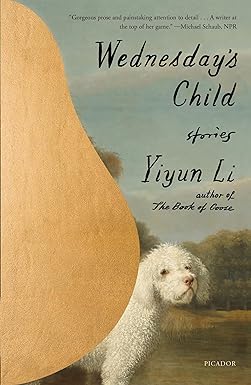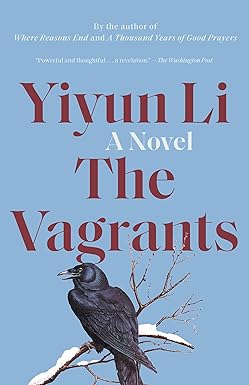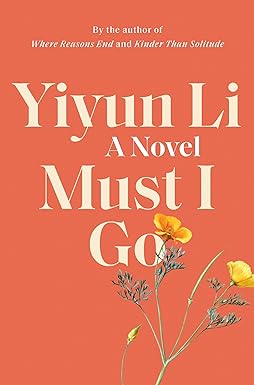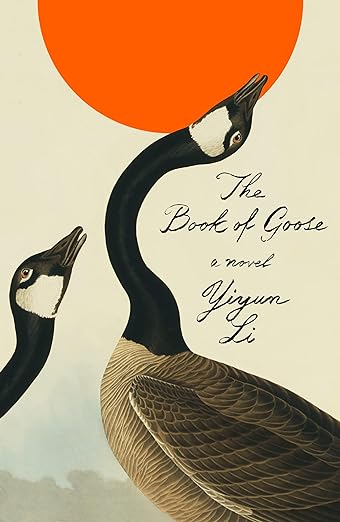Yiyun Li always knew she wanted to leave China. It was never a question of if, only of when. Born in 1972 in Beijing, she was on track to be a scientist, and studied cell biology at Peking University. But the job fair she attended after college presented her with dismal options: “All the jobs had signs that said ‘male only.’” As China opened up to the world in the 1990s, she saw many of her older peers leave the country after college, usually to America. So in 1996, when the opportunity arose to apply to graduate school in the U.S., she seized it.
“I think graduate school was just an excuse to leave China,” Li told me in an interview on the campus of Princeton University, where she now teaches creative writing. “I didn’t actually like China, or at least, I couldn’t really see a future in China. I didn’t think China had any future at the time … so that’s why I left.”
She enrolled in the immunology program at the University of Iowa, earned a master of science, then switched to the Nonfiction Writing Program to study for a master of fine arts, and joined the university’s celebrated Writers’ Workshop in 2003. The pivot was well worth it. Today, Li is the author of 11 books of fiction and memoir, most recently Wednesday’s Child, a story collection which came out last fall; her stories and essays have been published in The New Yorker and The Paris Review, among others; and her long list of awards includes a MacArthur Foundation Fellowship, a Guggenheim Foundation Fellowship and the PEN/Faulkner Award.
Li’s writing deals with heavy topics: loss, hardships, ordinary life amid political turmoil. She has also been open about her own struggles with mental health, and the 2017 loss of her teenage son to suicide. Given the gravitas of her writing, it was endearing to find how easy-going and warm Li’s presence is in person. She was cheerful and at ease, her manner unassuming. Dressed in navy and black, with large tortoiseshell glasses, she looked every bit the writer. Early on in our interview, sitting at a cafe in downtown Princeton, she paused mid-sentence to delightedly point out a baby passing by in a stroller, who caught her attention with his mewling cries. “It’s a little baby!” she remarked. “Just a few days old. I heard him crying like a little cat.”
Once you’re Chinese, you’re always Chinese. They put a mark on you. … And I don’t want to be owned.
Yiyun Li
Growing up in Beijing, Li had no idea that she would become a writer. Her father was a nuclear physicist, her mother a primary school teacher. Her first inkling that she was good with words came about by accident. In high school, her friend entered a speech-writing propaganda contest in the hope of winning a prize. Li told me:
“She put her heart into it and wrote a beautiful speech. And I thought, ‘I could do that.’ But I didn’t write anything — I just went up there and gave a speech. Winged it. And people were in tears — I was probably in tears too — but I just thought, this is the most ridiculous thing. I just made up something!”
Li walked away from the contest with the award, much to her friend’s dismay. Li was also upset, considering her gift negatively: to be able to speak platitudes in a way that moved people to tears. “Where’s the integrity?” she wondered. “I went up on stage and said these things I didn’t even believe.”
It wasn’t long before Li confronted her talent for propaganda writing again. Before college, she had to serve a year of military service compulsory for Peking University students after the 1989 Tiananmen massacre. Li described this military service as tedious and monotonous: days of training in shooting, combat, political “reeducation” and other “wastes of time” (she later fictionalized the experience in her 2010 story “Kindness”). Her main duty was writing propaganda, an activity she excelled at even though she disliked it. “It was either writing propaganda,” she said, “or cleaning the toilets.”
Yet during the training, Li found that she had ample time to read. She began to dig into English works by Dylan Thomas and Thomas Hardy, undeterred by her slow progress as she paused to look up words. While she had always been a reader of Chinese works (she mentioned Shen Congwen, Xiao Hong and Qian Zhongshu as being among her favorites), this was her first foray into English literature, and she was quickly hooked.
Li’s first inkling that she was good with words came about [when she] entered a speech-writing propaganda contest in high school.
Once in the U.S., it took many years and multiple attempts for Li to get a green card, and ultimately American citizenship. Her determination to live in America was driven in part by opportunity, but also by her relationship to the English language. Li had begun to write in English, and felt that living in an English-speaking country was necessary for her career. She is quick to point out the practicality of the choice, rather than being taken in by any narratives of American perfection. “I don’t think America is such a good country,” she told me, “but it’s more endurable than China.”
English quickly became her daily language as Chinese faded to the background. Li’s husband is Chinese (they met in college in Beijing), and while she still speaks to him in Mandarin, they switch to English if they are trying to ensure clarity. English, rather than Chinese, is their language of precision.
Over the years, Li has tried to distance herself from China. She does not visit China often, despite having family there, and only occasionally consumes Chinese media. She is not particularly interested in the state of U.S.-China relations; when I asked if the often-heated rhetoric between the U.S. and China bothers her, she shook her head:
“It’s all propaganda: Chinese propaganda, American propaganda. When you write fiction, people are never surprising. It’s a little predictable, you know?”
While she does not reject her Chinese identity, part of why Li has intentionally turned away is because of what she described as China’s insistence on “claiming” people. “Once you’re Chinese, you’re always Chinese” she said. “They put a mark on you. There’s something about China as a country or a group of people where they really want to own you. And I don’t want to be owned.”
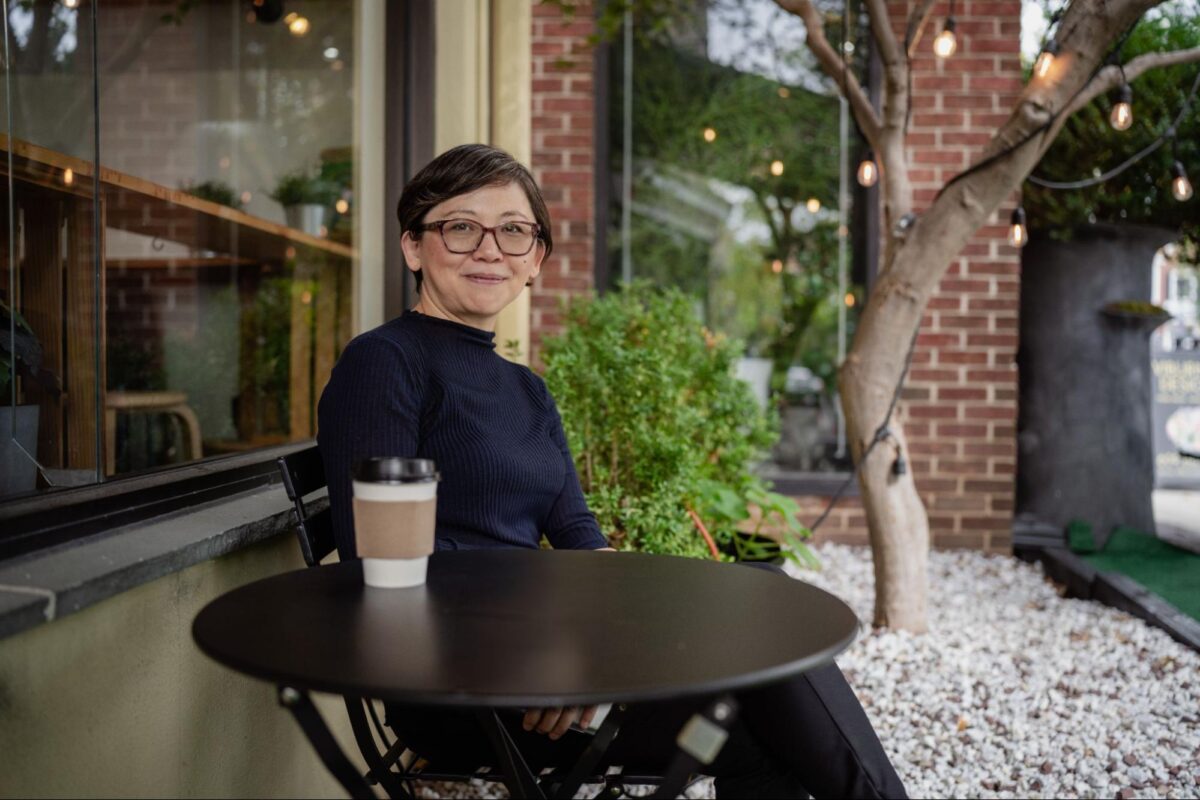
Despite this distancing, Li’s earlier novels and short stories set in China cannot deny the persistence of their political context. This operates as more than a backdrop; they are often the plot itself. Kinder Than Solitude (2014), for example, follows the poisoning of a Tiananmen Square student protester. The book traces how the characters are affected by the poisoning, but it is also the story of a political event that looms large in the contemporary consciousness. The revolutionary spirit of the poisoned student says something about the optimism of the protesting students and the horrific crushing of their hopes on June 4, 1989. The novel follows three friends linked to the poisoning, investigating the various ways in which their lives are unfulfilling, their relationships dull, and their moral fibers fragile. Is it unintentional that readers are left feeling the ache of all that was lost that night at Tiananmen?
The Vagrants (2009), meanwhile, is set in 1979, not long after the end of the Cultural Revolution. Through a cast of sympathetic and unsympathetic characters, all just trying to get by, the novel depicts a society reeling from what it has gone through in the Mao years. Yet, the trouble is not over. The novel opens with the execution of a young woman, who was a Red Guard before turning against the government and criticizing the Communist Party in her prison journals. Li tells the story of this execution with brutal detail, but in no way turns the woman into a martyr. Terrible things happen to a person who did terrible things; meanwhile, those who stand up for her — as well as those who pay it no attention — suffer at the hands of a society in which it feels impossible to thrive. Teacher Gu, the father of the executed woman, goes through the motions of execution day with more resignation than emotion:
It had never occurred to Teacher Gu that he and his wife were to pay for the bullet that would take their daughter’s life, but why question such absurdity when it was not his position to ask? He signed, and counted out the price of the bullet, twenty-four cents, for the two men.
Throughout, it is hard not to read this heart-wrenching portrait of a Chinese village as a condemnation of central government policies.
Many of Li’s short story collections are also deeply informed by the trials of the Cultural Revolution, or by the rapid transformation China has undergone in the last few decades. Her characters are plagued by the human condition, yes, but also by a corrupt government and a repressive society. Some of her stories highlight the role of politics more explicitly than others. “Immortality” (2003) connects the eunuchs of Chinese dynasties to a Mao look-alike who is blessed (cursed?) by his resemblance to the revered leader. “Persimmons” (2004) tells the story of one peasant’s attempt to get justice from a corrupt system for the death of his son. In other works, political executions are mentioned matter-of-factly, the Cultural Revolution is never far away, and inequality and injustice punctuate characters’ lives.
Li’s more recent books have moved away from China; instead, they take place in France or the U.S. In 2017 she transitioned to nonfiction, publishing Dear Friend, from My Life, I Write to You in Your Life, a fragmentary memoir, followed by Where Reasons End (2019), an imagined conversation between a mother and her deceased son, with clear resonances to the suicide of her own eldest son. Li sees a clear delineation between the first half of her literary career, where most of her stories take place in China, and the second half, which has largely left China behind. She brought up V.S. Naipaul, whose first three books were about the Indian diaspora in Trinidad, where Naipaul grew up:
“After the third book [A House for Mr. Biswas] he pretty much said he could write about his home country all his life, but he’s said what he said. So he wrote about Africa and other parts of the world. That’s how I feel. I’ve said enough about China. I’ve told enough stories about China. That’s it.”
Li’s earlier novels and short stories set in China cannot deny the persistence of their political context.
Some of Li’s writing has found criticism among Chinese people living in the U.S. for being too negative about her homeland. When she was in California speaking about The Vagrants, a woman who grew up in the same apartment complex in Beijing stood up during audience questions to give a passionate speech, saying that Li did not make her feel proud of her background or country. Similarly, a Chinese student at an American college once told Li: “I know you are a good writer. But this is not the China I want people to see.”
To Li, this is a Chinese mentality embodied in the phrase “family shame must not be shown outside” (家丑不可外扬). Li merely responded: “That’s life. I don’t write propaganda. If I don’t make you feel proud, I’m sorry, but if I write about America I’m not going to write about a beautiful America either.”
Until recently, Li did not allow her works to be translated into Chinese. Now, a translated version of her novel Must I Go (2020) awaits publication in China. She chose Must I Go, which follows a California-based octogenarian, to be her first book translated into Chinese in part because it has nothing to do with China. Her earlier books, which take place in China, are unlikely to be translated into Chinese, both because the censorship apparatus in the Chinese government is not likely to welcome their content, and because she herself is not personally keen on the idea. She has previously expressed a disinclination for her mother, whom she has described as “despotic and vulnerable,” to be able to read her work. In trying to escape Chinese ownership, she has also tried to turn away from memories of a “wrathful” mother.
Being translated into her mother tongue has been a first step for Li in returning more of her personal and literary attention to China, where she is starting to have more curiosity about modern Chinese literature. Last summer, she helped judge a writing contest for Chinese writers under the age of 45, hoping to learn more about contemporary Chinese writing and writers. In reading submissions, she was interested to see common themes around artificial intelligence, science-fiction, crime and livelihood. Li was particularly struck by the quotidian aspects of the latter, as they illuminate concerns plaguing China’s young people: how to pay rent, how much rent cost, how to eat without spending too much money, how to afford secondhand bags. She also found it interesting for what they are neglecting to mention: negative space as a statement.
“If you’re writing about China and not writing anything about the government,” she commented, “you’re creating a huge negative space. The absence is interesting.”
Li reflected on her position as an English-language writer who can also read in Chinese, and the potential influence that position has. As an established author, she knows her recommendations hold weight, and she is increasingly thinking about delving into contemporary Chinese literature and curating suggestions for American readers. She noticed a lack of diversity among Chinese-language writers who are translated into English, and has wondered where the younger or female voices are. To address this, Li is considering a project with her publisher, Farrar, Straus and Giroux, to curate annual recommendations of Chinese books to be translated into English. While she is still considering exactly what kind of involvement and impact she wants to have, that she is considering any engagement at all is a new step in her evolving relationship with her homeland.
If you’re writing about China and not writing anything about the government, you’re creating a huge negative space.
Yiyun Li
Li refutes any suggestion that her works are political. If fiction is too political, it becomes propaganda, she said. Instead, she creates characters and stories for herself, then lets them out into the world. She said she does not aim to educate a specific audience on the details of another place or time; she is only telling stories. I pushed back, saying that her novel The Vagrants portrayed the Chinese countryside so accurately — with intimate details that reached into the recesses of my own memories and reminded me vividly of my father’s countryside home in Jiangsu province — that she must have wanted to show people what that part of China is like.
With a sly smile, Li admitted that readers may learn something of the Chinese countryside from her books. But, she said, the same goes for her novel The Book of Goose (2022), which largely takes place in the French countryside.
“Everyone asked me, ‘How did you get the French countryside so right?’ Even my friends, ones that lived in France or are from France, said I wrote such an accurate picture of it.” She paused, chuckled. “I’ve never been to the French countryside! It’s all just countryside — Chinese, French — it’s countryside. It’s the countryside that is the same.”
Many critics and readers have tried to label Li, whether that is by birth nationality (a “Chinese writer”) or current location (a “Chinese-American writer”) or topic (a writer “about China”, or “about grief”). Li herself spends no time thinking about any of these labels, she told me. “That kind of ‘aboutness’ is the least interesting way to read literature. I don’t think about the aboutness of my work at all.” By the same token, she has no interest in fitting into a category of personal identity.
“I am from China, so I cannot say I am not Chinese, right?” she told me. “But I wouldn’t call myself a Chinese writer because I don’t write in Chinese. And I gave up that citizenship. I can’t think of myself as Chinese or American. I think these things are for other people to entertain themselves with.” She paused, a mischievous look on her face. “But so far, no one has called me a French writer.”
Li’s attempts to distance herself from labels and politics are an appealing dismissal of those determined to find subversive messages in her work simply because of her background. Her focus is on creating flawed, illogical and limited characters, then exploring how they move through the world. Her books contain complicated, messy people exploring the emotional depths of humanity, and like the best writers she navigates the human condition with dexterity.
Perhaps it is precisely because Li is not writing “about” China, or with a political agenda, that her books are such beautiful and insightful pathways to understanding periods of Chinese history and the humanity wrapped up within them. In creating painfully real, imperfect people and situations, she reflects our world and ourselves back at us. Besides, no matter what her characters are doing or where they live, people are people, and countryside is countryside. ∎
Feature image: Yiyun Li at the Edinburgh International Book Festival, 2017 (Simone Padovani/Awakening/Getty Images).
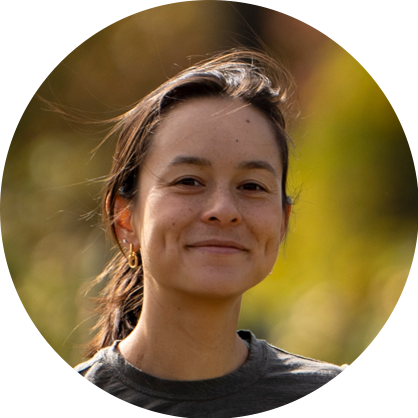
Taili Ni is Senior Program Officer at the Asia Society Center on U.S.-China Relations, and Assistant Editor of the China Books Review. She holds a master’s degree from National Chengchi University in Taipei, a bachelor’s degree from the University of Puget Sound, and is a Fulbright Taiwan alumna. She grew up in California, and lives in New York.


